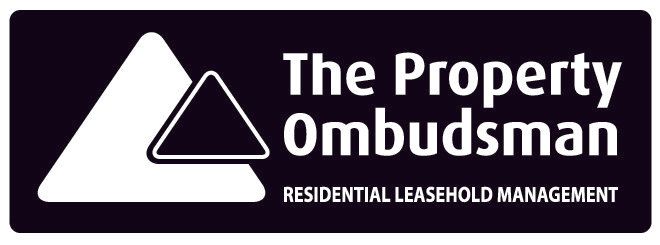Build-to-Rent vs Buy-to-Let: Landlord Responsibility
Leanne Gresswell
Should tenants fear the rise of the corporate landlord? That’s a question recently posed by the Financial Times, leading into a debate around the rising build-to-rent sector.
The article investigates the intentions of large companies operating build-to-rent blocks, in that they’re looking to “shake-up” a sector currently dominated by private landlords. Such companies are claiming to offer what those individual landlords (supposedly) don’t; professionalism, high-level services, and stable pricing.
The FT focuses quite heavily on one company in particular, with an insight into whether they were meeting such standards. The verdict? They weren’t. An anonymous ex-resident complained about poor response times to maintenance that compromised security, and annual rent increases despite an initial promise of ‘stable’ fees.
Buy-to-let landlords have long been subject to bad reputations, giving build-to-rent businesses a foot-in when it comes to tenants ‘changing sides’. Our question is, can we really separate buy-to-let from build-to-rent when it comes down to the core of landlord duties? Does a landlord’s responsibility not remain the same whether they’re letting two flats or 2,000?
The FT reported that rental brand ‘Uncle’ is operating on the basis that they will “treat renters like humans”. As opposed to “second-class citizens”. But, in the eyes of us Property Manager’s, that should always be the case. The property landscape is changing, or perhaps we can say it has changed. Rent costs might be increasing, but the reason more and more people are choosing to rent is that they simply cannot afford to buy. Or, they just don’t want to. Renters, if they ever were, are no longer “second-class citizens”. They’re simply citizens of 2019.
What we’re getting at, is that if there’s a problem, ‘corporate’ probably isn’t it. The problem, on any scale, is landlords who are unable or unwilling to deliver a good quality of service to their tenants. And that’s always been the case. The difference now is that can apply to a landlord in the private rented sector who isn’t willing to respond to repairs, as much as it can to corporate companies who simply aren’t equipped to handle capacity.
Do you ever hear of a good landlord? Probably not. Because their tenants aren’t complaining. They’re living comfortably and confidently in their homes, assured that they’re paying a fair amount in rent and receiving a satisfactory level of service in return. There’s no ‘battle’, the only difference to homeowners being that if they need a plumber, they don’t call one; they call their landlord, managing agent, rental company, whoever’s responsibility it may be, and rest assured that a man with a plunger will be with them in good time.
But the reality is that the rental market is changing significantly and rapidly. We don’t believe that the growth of build-to-rent is intent on phasing out private buy-to-lets; it is an answer to increasing demand for rental properties, in an era where buying isn’t always an option. This is going to cause problems in itself, as private landlords and build-to-rent schemes alike try to keep up. And we can’t blame landlords for (reasonable) rental increases in a world where inflation is a constant. Though of course, you could argue in that case that static fees shouldn’t be promised in the first place. And quite right that argument would be.
Of course, rental schemes of such a large scale are statistically more likely to displease at least one tenant, especially at a time when build-to-rent companies are trialling the likes of AI to deal with property management and maintenance. It’s in these areas that build-to-rent and buy-to-let will experience the divide; private landlords will surely remain more traditional in their approach to property management, whether that’s direct or via a managing agent. While build-to-rents need to find their feet, especially in terms of where technology fits into renting. What needs to be remembered is that a mere few years ago, the build-to-rent sector was, as the FT put it, “virtually non-existent”. And perhaps it still would be if it wasn’t for necessity.
So, should tenants fear the rise of the corporate landlord? Our answer is no. At the end of the day, these schemes are being put in place to respond to demand and give renters more options, while also trying to answer to everything that the modern world (and the modern resident) demands. What should be ‘feared’ (for want of a better word) is any landlord, corporate or otherwise, who doesn’t intend to deliver a quality service.

From autumn 2025, under the Economic Crime and Corporate Transparency Act 2023, all directors and Persons with Significant Control (PSCs) must verify their identity with Companies House. While many firms are handling this quietly in the background, we believe our clients deserve full visibility into what’s happening and how we’re preparing on their behalf. So, What’s Changing? This isn’t just another form to complete. The law is designed to: Stop people from using companies for criminal or dishonest purposes Improve transparency in the UK’s corporate system Ensure every director is personally identifiable and accountable If you don’t verify your identity, you may: Be barred from acting as a director Prevent your company from filing legal documents Be subject to fines or disqualification How Are We Supporting Our Clients? We’ve rolled out a full, structured support plan to help directors meet the new requirements. Here’s what Cleaver are doing : 1. Notifying Directors Early - We’ve contacted all directors across the companies we manage using tailored letters and templates, clearly explaining what’s required and when. 2. Offering Step-by-Step Guidance - We’ve created easy-to-understand materials to help directors: Choose how to verify (online, Post Office, or via an ACSP) Understand the process Get support if they’re unsure where to start 3. Tracking Progress Internally - We maintain a compliance checklist for every company we manage. This allows us to: Track which directors have verified Send timely reminders to those who haven’t Avoid last-minute compliance issues 4. Helping Boards with Removal (If Needed) - If a director refuses to verify and the company’s Articles allow for it, we’ll assist with: Legal guidance Notices and paperwork Filing director removal forms with Companies House 5. Answering Questions Along the Way - We’ve trained our team to answer queries about the new rules and if needed, we’ll help connect you with a solicitor or accountant who can act as an Authorised Corporate Service Provider (ACSP). Why Does This Matter? This legislation is a major step forward in protecting companies and the people who run them. We believe in staying ahead of compliance and ensuring our clients feel confident, not confused. By taking this proactive approach, Cleaver Property Management is helping to: Protect directors from penalties Ensure companies stay compliant Promote trust and transparency in the leasehold management sector Do You Need Help? If you’re a director and aren’t sure what to do next, we’re here to help you understand your responsibilities and how to meet them. Email your Cleaver Property Management contact or reach us at info@cleaverpropertymanagement Cleaver Property Management – Supporting Directors. Safeguarding Companies.













